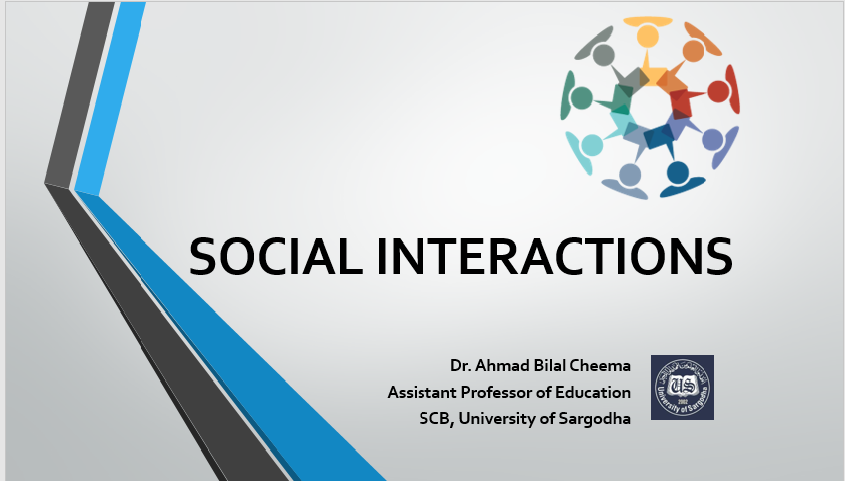
SOCIAL INTERACTIONS
SOCIAL INTERACTIONS
(Lecture outline- brief notes)
- A social interaction is an exchange between two or more individuals
- Social interaction is the way we act and react to those around us
- social interaction includes those acts people perform toward each other and the responses they give in return.
- It is a building block of society.
- social interactions are the foundation on which, Social structures and cultures are made
- Social interaction can be studied between groups of two (dyads), three (triads) or larger social groups.
- By interacting with one another, people design rules, institutions and systems within which they live.
- Every society has its Symbols, through which society communicate the expectations to the new person/s in that environment.
Social interactions include a large number of behaviors, usually divided into these categories.
- Exchange relationships : Exchange is the most basic type of social interaction. Whenever people interact in an effort to receive a reward or a return for their actions, an exchange has taken place.
- Competition: is a process by which two or more people attempt to achieve a goal that only one can attain. Competition is a common feature of Western societies and the cornerstone of the capitalist economic system and the democratic form of government. Most sociologists view competition as a positive thing - one that can motivate people to achieve goals. However, competition can also lead to psychological stress, a lack of cooperation in social relationships, inequality and even conflict.
- Cooperation is the process in which people work together to achieve shared goals. Cooperation is a social process that gets things done; no group can complete its tasks or achieve its goals without cooperation from its members. Oftentimes, cooperation works together with other forms of interaction, such as competition. In a cricket match, for example, a team will work together (cooperation) while attempting to achieve a victory (a goal that only one team can attain).
- Conflict relationship; conflict can bind people on opposing sides into groups and conflict can lead to required social change. Examples are war between groups, conflict within group, Litigation,
Importance of social Interactions
- Establishes sense of “Self”
- Learning of suitable social behaviors such as sharing, cooperating respecting property of other
- Learn communication, cognitive and motor skills (Role of Play in social interactions)
- Increase the capacity to make and sustain social interaction in social and professional life
How to improve Social Interactions
- Greet Someone
- Engage in a conversation
- Volunteer
- Ask for advice
- Network with people
- Turn opponents into proponents
- Be courteous
- Be positive
- Be observant
- Be Honest



